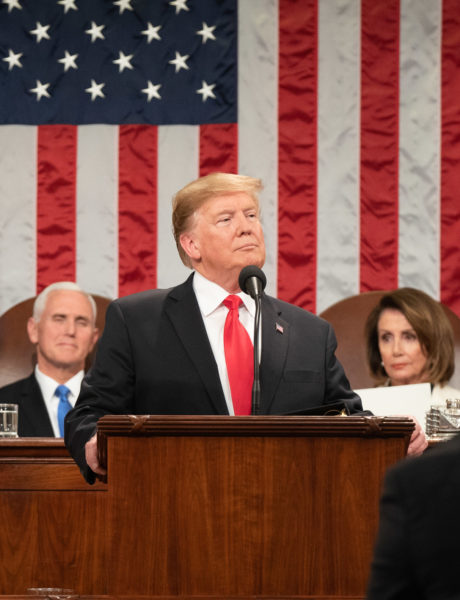Coronavirus: US Senate and White House Agree on $1.8TN Stimulus Package

Senate leaders and the White House have agreed on a stimulus package worth more than $1.8 trillion to ease the impact of coronavirus.
The stimulus reportedly includes payments of $1,200 to most American adults and aid to help small businesses pay workers.
Full details of the deal, which Congress is expected to pass, are not known.
Financial markets around the world rose on news of the deal.
President Donald Trump has said he hopes the US will shake off coronavirus within less than three weeks.
However, the top US infectious disease expert, Anthony Fauci, warned that “you have to be very flexible” about a timeframe for ending the crisis.
Meanwhile, New York Governor Andrew Cuomo warned the illness was spreading faster than “a bullet train” in his state, which is at the centre of the pandemic in the US.
After 802 deaths and 55,225 confirmed infections, the US is more than midway through a 15-day attempt to slow the spread of the virus through social distancing.
Around 19,000 people have died with coronavirus across the planet since it emerged in China’s Wuhan province in January, and more than 425,000 infections have been confirmed.
Southern Europe is now at the centre of the pandemic, with Italy and Spain recording hundreds of new deaths every day.
Governments around the world have responded by locking down societies in the hope of slowing the spread of the virus.
The stimulus agreement announced by Democratic and Republican senator leaders at 01:30EDT on March 25 includes tax rebates, loans, money for hospitals and rescue packages.
According to media, individuals who earn $75,000 or less would get direct payments of $1,200 each, with married couples earning up to $150,000 receiving $2,400 and an additional $500 per each child.
Coronavirus: California Puts 40 Million Residents Under Lockdown
Coronavirus: Two US Congressmen Test Positive for Covid-19
Senate Majority Leader Mitch McConnell described the package as a “wartime level of investment” in the US nation.
If passed, it would be the largest government economic stimulus in US history.
The agreement must still be voted through the House of Representatives and the Senate before President Trump signs it off but it enjoys cross-party support.
One factor that may delay its passage is the question of how voting will be conducted, given that some members of Congress are off with coronavirus or are self-isolating having come into contact with infected people.
New York Governor Cuomo dismissed the plan as “terrible for the state” and called the proposed $3.8 billion “a drop in the bucket, as to need”.
He said New York was facing a $15 billion revenue shortfall, and estimated that $1 billion has already been spent on the coronavirus response.
The details of the stimulus bill have not yet gone to the House, making some lawmakers wary of signaling their early approval.
If any member objects to unanimous consent, lawmakers will be asked to return to Washington and vote over the course of an entire day, in order to limit how many people are present on the House floor at one time.
President Trump said he hoped America could get back to normal by Easter, which falls on April 12 this year.
He told Fox News: “We’re going to be opening relatively soon…
“I would love to have the country opened up and just rearing to go by Easter.”
However, the president later sounded more cautious, saying: “We’ll only do it if it’s good.”
President Trump added that re-opening could be limited to “sections” of the country such as “the farm belt”.

